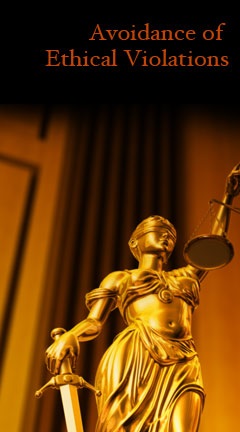Archival Notice
This is an archive page that is no longer being updated. It may contain outdated information and links may no longer function as originally intended.
Home | Glossary | Resources | Help | Course Map
Ethical violations that may affect an expert's testimony must obviously be avoided.
Examples include:
- Falsifying or altering data.
- Improperly or incompletely performing the investigation or testing.
- Conditionally engaging the expert (threatening retaliation).
- Providing false testimony.
- Intentionally ignoring available data.
- Recanting prior counter positions.
- Engaging in assignments beyond one's competence.
- Accepting unauthorized attorney influence.
- Providing inadequate support or time to complete the assignment.
- Reaching a conclusion before the research is completed.
- Permitting conflicts of interest.
- Producing fraudulent credentials.
- Making payment contingent on desired testimony.
Additional Online Courses
- What Every First Responding Officer Should Know About DNA Evidence
- Collecting DNA Evidence at Property Crime Scenes
- DNA – A Prosecutor’s Practice Notebook
- Crime Scene and DNA Basics
- Laboratory Safety Programs
- DNA Amplification
- Population Genetics and Statistics
- Non-STR DNA Markers: SNPs, Y-STRs, LCN and mtDNA
- Firearms Examiner Training
- Forensic DNA Education for Law Enforcement Decisionmakers
- What Every Investigator and Evidence Technician Should Know About DNA Evidence
- Principles of Forensic DNA for Officers of the Court
- Law 101: Legal Guide for the Forensic Expert
- Laboratory Orientation and Testing of Body Fluids and Tissues
- DNA Extraction and Quantitation
- STR Data Analysis and Interpretation
- Communication Skills, Report Writing, and Courtroom Testimony
- Español for Law Enforcement
- Amplified DNA Product Separation for Forensic Analysts


